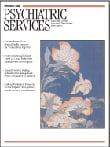What Do Mothers Want? Developmental Perspectives, Clinical Challenges
In a cultural context in which we are confronted with multiple schools of thought on parenting and in which child rearing receives close, public scrutiny, What Do Mothers Want? edited by Sheila Feig Brown, is a unique contribution furthering these—and beginning new—dialogues. The book provides food for thought for clinicians serving women, couples, and families who are struggling to make meaning from their lived experiences and life choices around family. This book is the second volume in a series of four published by the Analytic Press entitled Psychoanalysis in a New Key, and it is a compilation of chapters adapted by the contributors from their panel discussions and workshops at a recent conference, which this book was named after. The book aims to address current gaps in psychoanalytic theory as it relates to women and family and encourages careful consideration of the question, "What do mothers want?"
The book largely succeeds in providing much-needed discussions on often marginalized topics about the development of mothers' love and attachment to their children, motivation to care for and protect their children, and the salient roles of partners and extended family members in "mothering" both the mother and her children. In addition, contributors address the ambivalence of many women around the decision to parent as well as issues that may be triggered in women and couples facing infertility. In terms of theory, perhaps the most valuable contributions are those that look at the constellations of family outside the narratives of heterosexual norms and that challenge traditional ideas of who a mother is that have historically been taken for granted in case conceptualizations and treatment.
The chapters are inconsistent at times in terms of writing style and compatibility with the overarching question of the volume. A small portion of the contributions read like a keynote address or an editorial with no clear thesis and are questionable as to their relevance and value in adding new ideas and perspectives to the discussion of mothers. This might be attributed to the origins of this compilation as conference presentations and is perhaps a side effect of the difficulty of adapting the spoken to the written word. Despite its occasional inconsistencies, What Do Mothers Want? is an interesting read and a valuable contribution to psychoanalytic theory that is likely to be beneficial for mental health professionals providing direct service, supervising clinicians, or teaching on the topic of women's mental health. It provides not so much an answer to its question but an exploration of the various intersections women encounter over the life span with respect to their identities and choices around family. The book also looks at how clinicians can begin to understand these developmental challenges and provides guidance in negotiating and addressing them.



